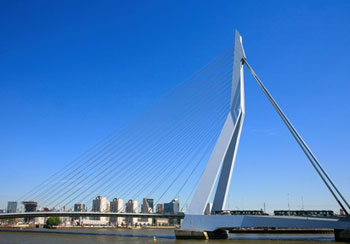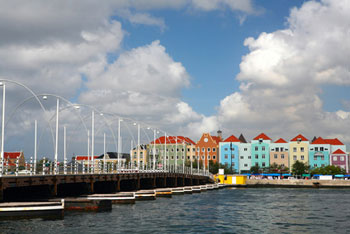 |
| dilettarsi | pensare | sorridere | le rubrilie | news | pubbliredazionali | contatti |

Il periodico
Dopo una laboriosa (e avventurosa) preparazione, a ottobre 2009 esce il numero zero di www.possibilia.eu periodico online per curiosi. Una realizzazione che riflette l'orizzonte libero e senza preconcetti della nostra linea editoriale.
Da subito, un gruppo di autori aderisce al progetto, alcuni dei quali formano il nucleo redazionale più stabile.
Possibilia si non si propone di fare informazione in senso stretto: tante altre testate più veloci e attrezzate ricoprono già questo ruolo. La nostra rivista desidera offrire ai suoi lettori contenuti insoliti, dando diritto di cittadinanza a temi o chiavi di lettura spesso trascurati o snobbati. Un periodico generalista a 360 gradi? Solo in parte. Possibilia non funziona per compartimenti tematici, ma per modalità di approccio alla materia. Accoglie così una sezione per Dilettarsi, una per Pensare e una per Sorridere. Si aggiungono una sezione di News - la sezione “d'attualità” della testata - e una sezione destinata ai Pubbliredazionali, con lo scrupolo di mantenere eticamente distinti contenuti commerciali e redazionali, valorizzando così entrambi.
Con la nuova versione della rivista, inaugurata nel 2012, abbiamo deciso di aggiungere una sezione (le Rubrilie) dedicata alle nostre passioni: il vino, il rugby e il viaggio.
Contatta la redazione: redazione@possibilia.eu
I libri
Nel 2010, gli esiti incoraggianti della rivista e il desiderio di ampliare il progetto editoriale dànno vita alla parte cartacea della nostra attività.
Vai a www.possibiliaeditore.eu
|
|||
The Netherlands are a country full of paradoxes and surprises. On the surface, it is a friendly, open and liberal society where almost everyone speaks English. This is particularly the impression one has when visiting cities such as Amsterdam or the Hague. When I was appointed to a lectureship at the Erasmus University Rotterdam, therefore, I welcomed the opportunity to explore what seemed to be a very attractive European country. I duly arrived in 1991 with my wife and one-year old daughter. My wife was also appointed to an academic lectureship in the same university. Although it is possible to live in the Netherlands for twenty years without learning Dutch, it was written into our contracts that we would have to be able ‘work in’ (but not necessarily teach) in Dutch after two years. We would have done in any case but the University kindly provided intensive lessons in Dutch. After about four weeks of lessons, it was already possible to speak some Dutch and, after the statutory two years, we were reasonably fluent and even doing some teaching. This also allowed us access to Dutch society and culture. The first paradox to strike me, however, was the disconnection between the surface image of openness and welcome and the everyday realities of Dutch society. In practice, this proved to much more inaccessible than we had imagined. Over the period of three years that we spent there before returning to Britain, we were invited to dinner about three times and only one of these invitations was offered out of friendship, and not out a sense of duty on the part of the head of department. The Dutch, it turned out, were in fact very private people and tended to stay within their own families. Symbolic of this was the curious fact that the Dutch rarely draw the curtains of their houses so that it is possible to look in and observe their everyday lives. From our apartment above shops on Rotterdam’s Kleiweg, I could look across at similar apartments and see into the lives of my neighbours on a daily basis. It was a little like the scenes in Alfred Hitchcock’s 1954 movie Rear Window. One could observe my neighbours’ daily pattern of breakfasting, watching early morning TV, getting the kids ready for school, taking the dog for a walk, etc. But never once did I enter one of these houses nor speak to their inhabitants. I became very curious about this and wondered what lay behind it. There are probably several factors. First, the Dutch, although today one of the most secularized peoples in the world, have retained a kind of scrubbed-clean Calvinistic ‘sincerity’ (familiar to me from growing up as a Catholic in Protestant Belfast) and their open blinds were a sign they have nothing to hide from the outside world. Indeed, this Protestant ethic wished to show their houses as spic and span and well-polished. But another, more material, factor may be that the Netherlands are an extremely densely populated country you simply cannot escape from other Dutch people crowded together on a their tiny country part of which has been wrenched from the North Sea. So the open blinds give a sense of space and openness but, at the same time, the inhabitants retain their privacy and family intimacy. In fact, the Dutch are masters at creating space on a very inhospitable soil and this can also be seen from the tiny gardens they manage to maintain in small plots outside their houses. |
|||
|
|||
Another striking paradox is the peculiar combination of liberalism and tolerance with a kind of social conservatism. The Dutch have carried Rawlsian liberalism and individualism to an extreme and almost any form of behaviour is acceptable if it does not interfere with the freedom of others. The Dutch have long accepted homosexuality and were one of the first countries to permit homosexual ‘marriage’ and adoption of children. They are also famous for their liberal attitudes to both drugs and prostitution both of which are legal and available in the famous coffee shops (for drugs) and red light districts (for prostitutes). A more worrying development has been the banalization of euthanasia and assisted suicide both widely practised in the Netherlands. When I lived there in the 1990s, euthanasia was practised by doctors despite being illegal although doctors were not punished. The next step was to legalize it under specified circumstances the patient had to have a terminal illness and be in intolerable physical suffering. The conditions were subsequently liberalized to include mental suffering and handicapped children. Then children could be euthanized with the consent of their parents. Then children above the age of 16 without the consent of their parents. Personally, I found these developments morally repugnant and they were among the factors that persuaded me to leave the Netherlands after three years. Rather than respecting the dignity of the human person, they degraded the value of human life and created conditions of insecurity for elderly and frail people. It is also doubtful whether many of those killed by doctors really consented to this but were often pressurized by relatives or doctors to sign the consent forms. Furthermore, a UK House of Lords Select Committee who visited the Netherlands to examine this issue discovered that each year about 1,000 people are put to death by doctors without having consented to this. The evidence for this came from doctors themselves. But alongside this social liberalism co-exists a quite traditional family life where women, once they have children, tend to stay at home to raise them. Today, in fact, there has been a reaction against the ultra-liberal approaches which some Dutch people at least think have gone too far. Thus, the City of Amsterdam has begun imposing restrictions on the coffee shops and red light district. Behind the façade of liberalism, they recognize, lies a world of crime, with widespread trafficking and exploitation of vulnerable human beings, some of whom are extremely young. Unfortunately, there does not yet seem to be a willingness to adopt more restrictive approaches to euthanasia. The famous Dutch tolerance has also been tested by the presence of large Muslim minorities from Morocco and Turkey who do not share these liberal values. This has led to incidents such as the murder of Pim Fortuyn, a right-wing and xenophobic homosexual, who felt that Islam’s illiberalism was a threat to Dutch society and who had founded a political movement to oppose it. Similarly, Theo Van Gogh, an anti-Muslim film-maker, was also assassinated. These events have called into question not only Dutch tolerance but also the project of multiculturalism which has underlain Dutch approaches to immigration and assimilation of migrants. These reflections might seem to be unduly pessimistic and the question I ask myself is whether I would go back to live in the Netherlands. I recognize that there are many positive features of Dutch society. It has an excellent set of public services including hospitals, schools and public transport. Furthermore, one can cycle almost anywhere. Towns such as Amsterdam, Gouda and Delft are among the most beautiful in Europe. It possesses touching windmill-covered landscapes such as at the Kinderdijk. But overall I think my answer would be no because of the stultifying political correctness and smugness that characterizes important sections of Dutch society. I would also worry about the underlying selfishness and utilitarianism that leads to practices such as euthanasia, drug-taking and prostitution all of which seem to me to betray a narrow and superficial interpretation of what it means to be a human being. No, I think I would prefer Florence, Aix-en-Provence or Paris. John Loughlin is Professor of Politics in Cardiff University and a Visiting Fellow at St Edmund’s College, Cambridge. He is currently Distinguished Visiting Research Fellow at the University of London. The Princeton Centre of Theological Inquiry invited him to be a member of their Residential Colloquium in 2010. The University of Umeå, Sweden awarded him an honorary doctorate ‘in recognition of his great contribution to research in the fields of European politics and regional and local government’. He is a Fellow of the Royal Society of Arts, of the Royal Historical Society and of the Academy of Social Sciences |
www.possibilia.eu - Possibilia Editore - Tutti i diritti riservati - Iscrizione Registro degli Operatori di Comunicazione n.18618


